Our team, “Earthlings” is working on Sustainable Development Goal: 11 Sustainable Cities and communities. We initially started by understanding what the relative goals are, and targets to achieve under SDG–11. Our key learnings about the goal were acquired from the United Nations website, and we found out about the goal that was set to be achieved by the year 2030.
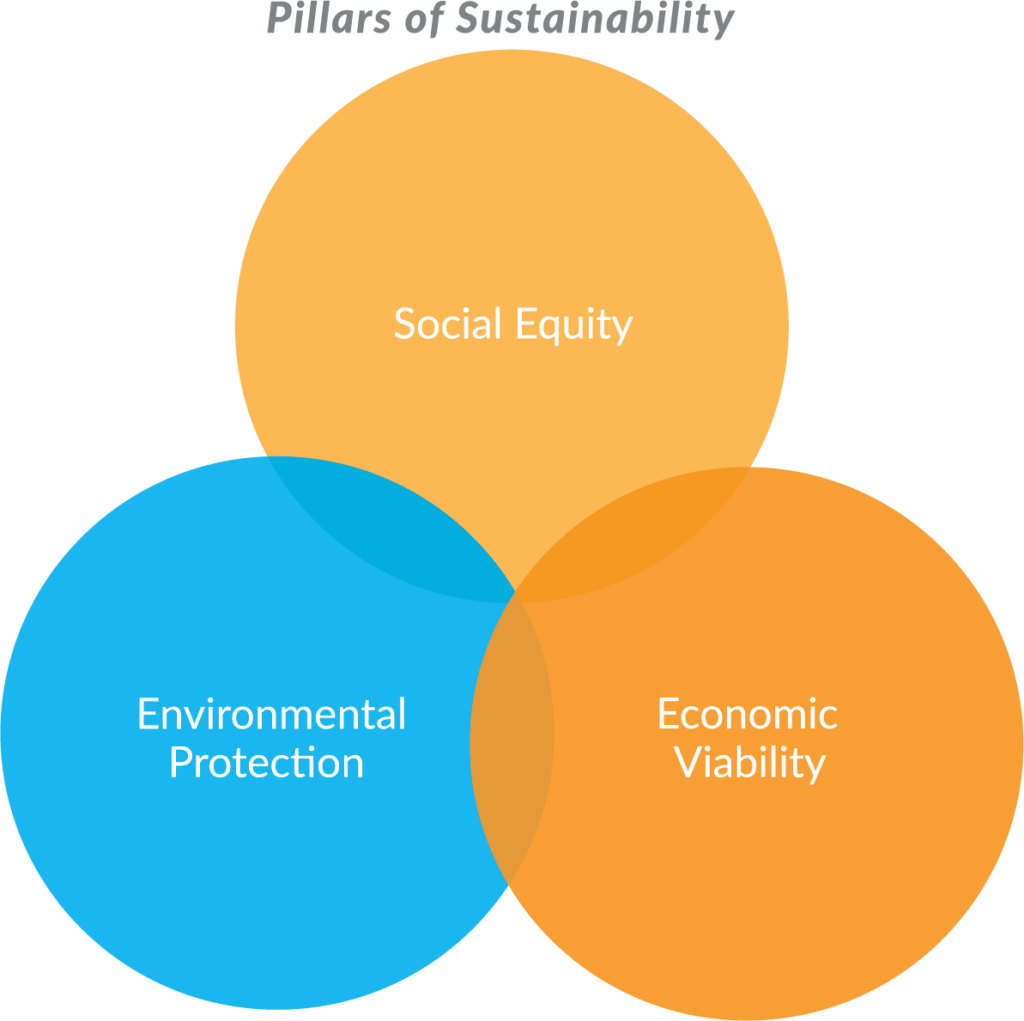
For the opportunity cards, we started with brainstorming on two main areas that are “Cities” and “Communities”. After our brainstorming activity, we clustered similar topics together under the Affinity diagram. From this diagram, themes were identified. Individually, we selected 1-2 research areas and did our secondary research in those areas. The topics that we further iterated, were waste management, transport, infrastructure, urban planning, and sustainable practices during COVID-19.
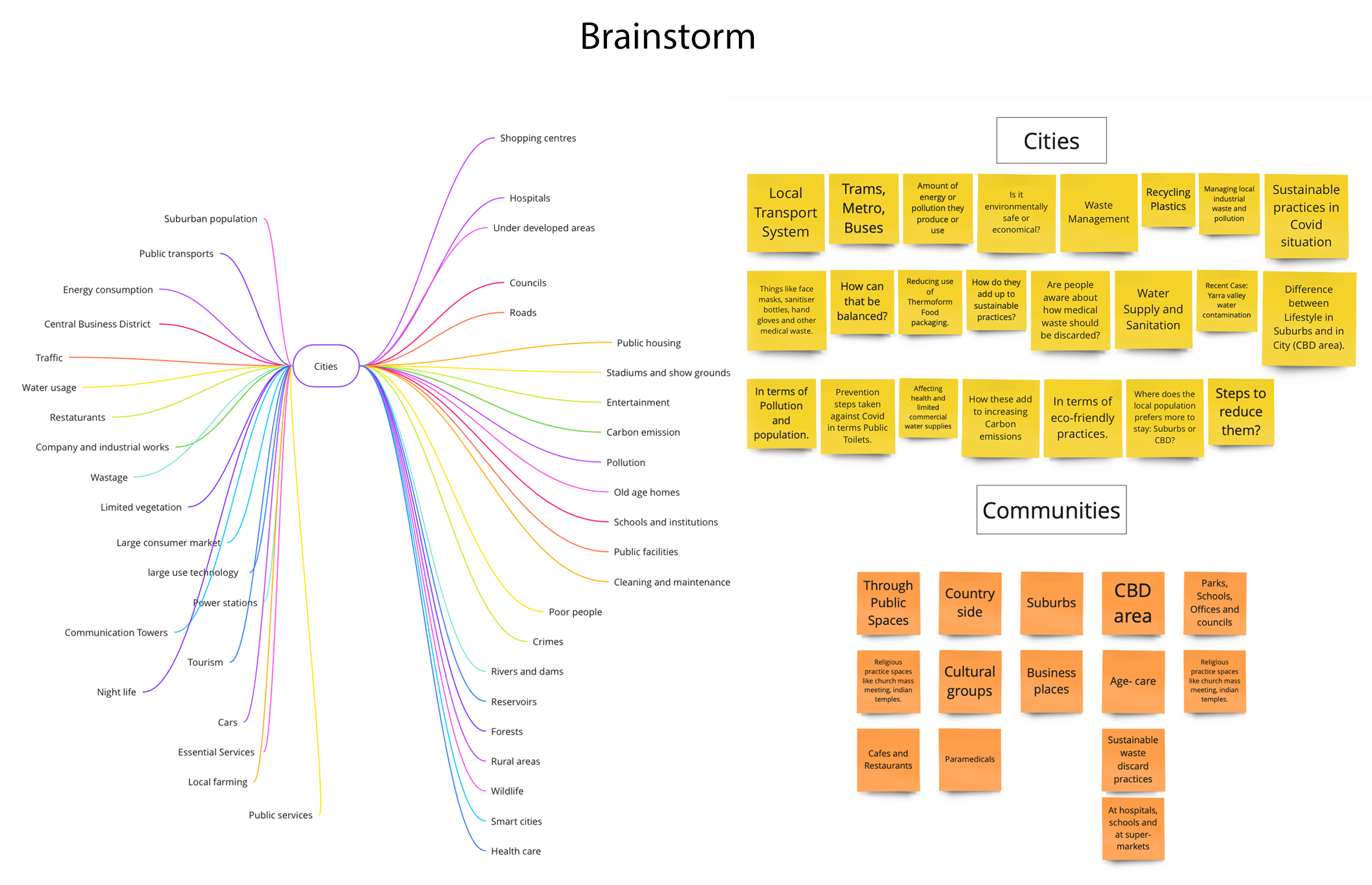
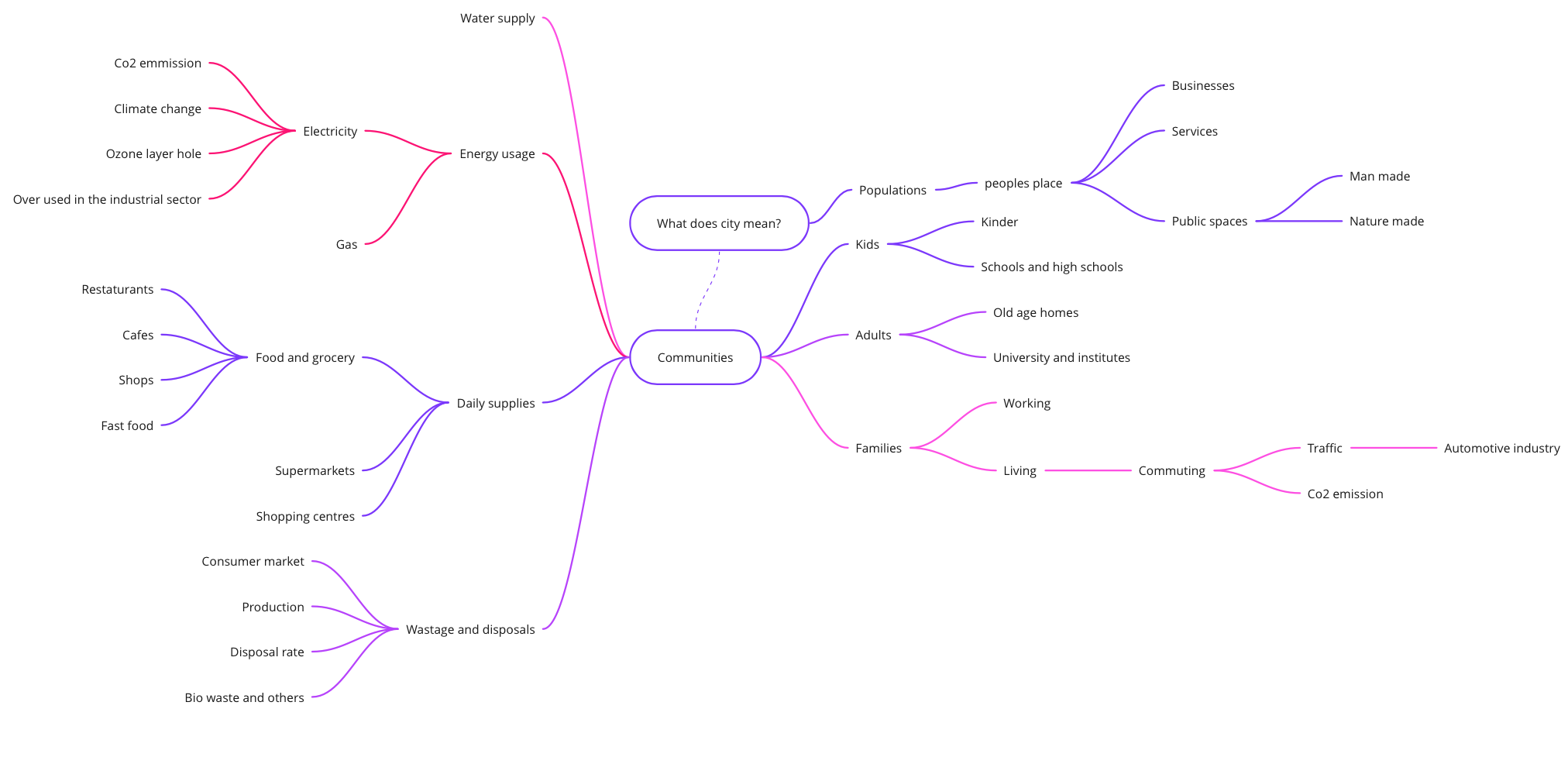 Overview of our brainstorming process
Overview of our brainstorming process
One of the topics that we covered in the card is about issues of public transport in the outer suburbs. The outer suburbs of Melbourne are not so well equipped with public transport. The main issue is the low frequency of transport in these areas. These problems are surfacing due to the increased use of cars in other urban areas as it is inconvenient to travel by public transport. We connected this issue with a different opportunity which is the traffic congestion issue in Melbourne during peak hours. During peak hours, the minimum extra travel time that is required is between 15-30 minutes. This addresses the issue of increased carbon dioxide emissions. Another issue about the environmental impact that we identified was the problem of plastic waste within the city of Melbourne. Most of the plastic waste ends up in water sources, affecting marine life and our food chain. The other opportunities related to the waste management topic we considered were the issue of food waste and medical waste. The amount of medical waste that is generated has doubled up due to the recent Coronavirus global pandemic. The disposal of PPE kits used in hospitals and other healthcare industries is raising concerns among the public and stakeholders. Under the topic of environmental impacts, logging of forests and scarcity of water were two other opportunities identified.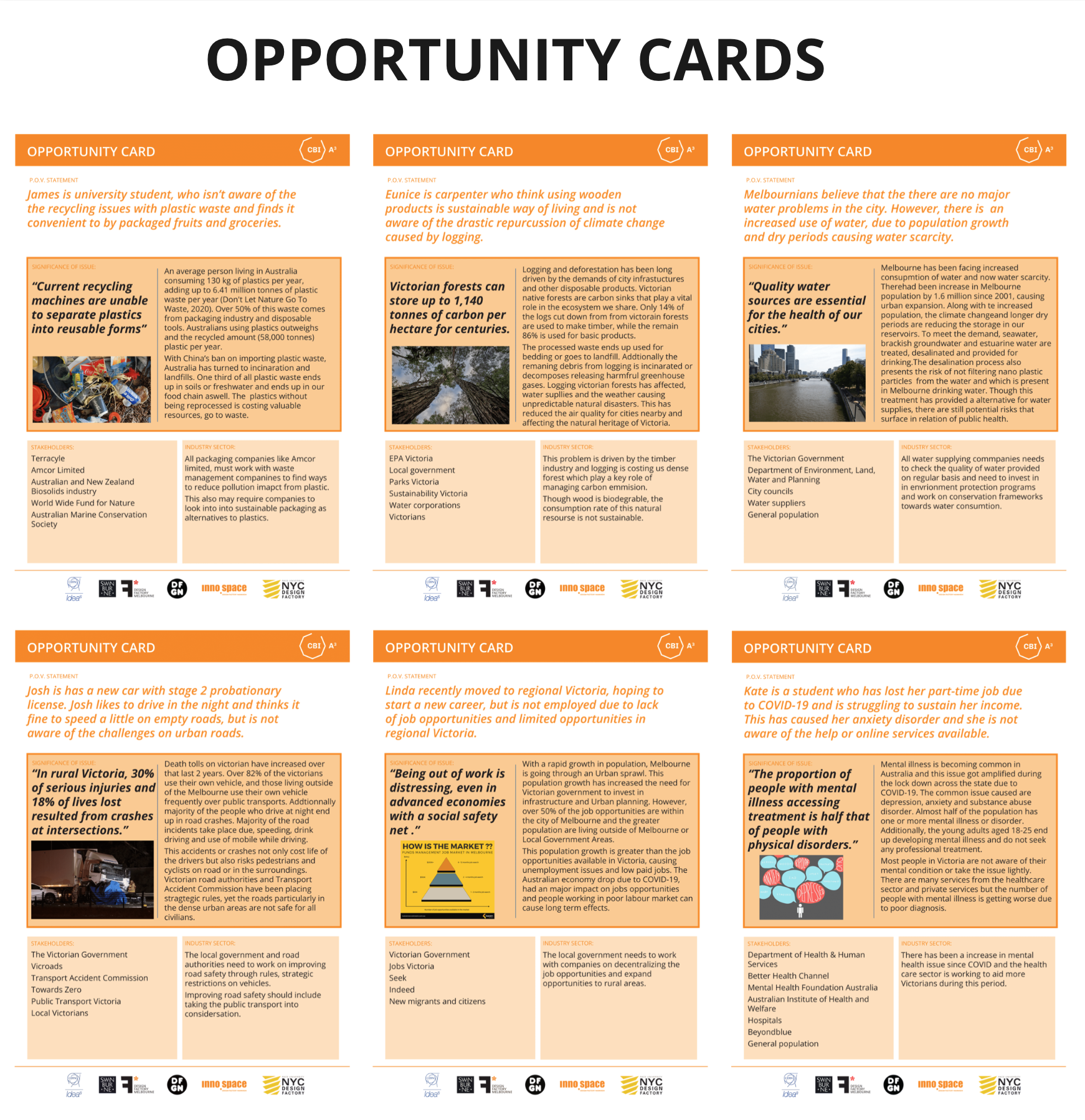
Overview of our opportunity cards
The other opportunities identified by our team were mental health issues and the problem of unemployment and bullying amongst school children. Due to the lockdown, there is an increase in mental health issues like depression, anxiety due to social isolation amidst the local population. Safety on roads was another opportunity, we have two cards under that topic which are the issues of road accidents in Melbourne and dooring which puts a risk to the lives of cyclists that form a major chunk of Melbourne’s population.
The three CERN techs that we covered in our cards are as follows: Train Inspection Monorail (TIM), Flame detector, and Long-distance motor driver. We found these technologies interesting due to the safety measures and the specific task they were designed to perform replacing manpower.
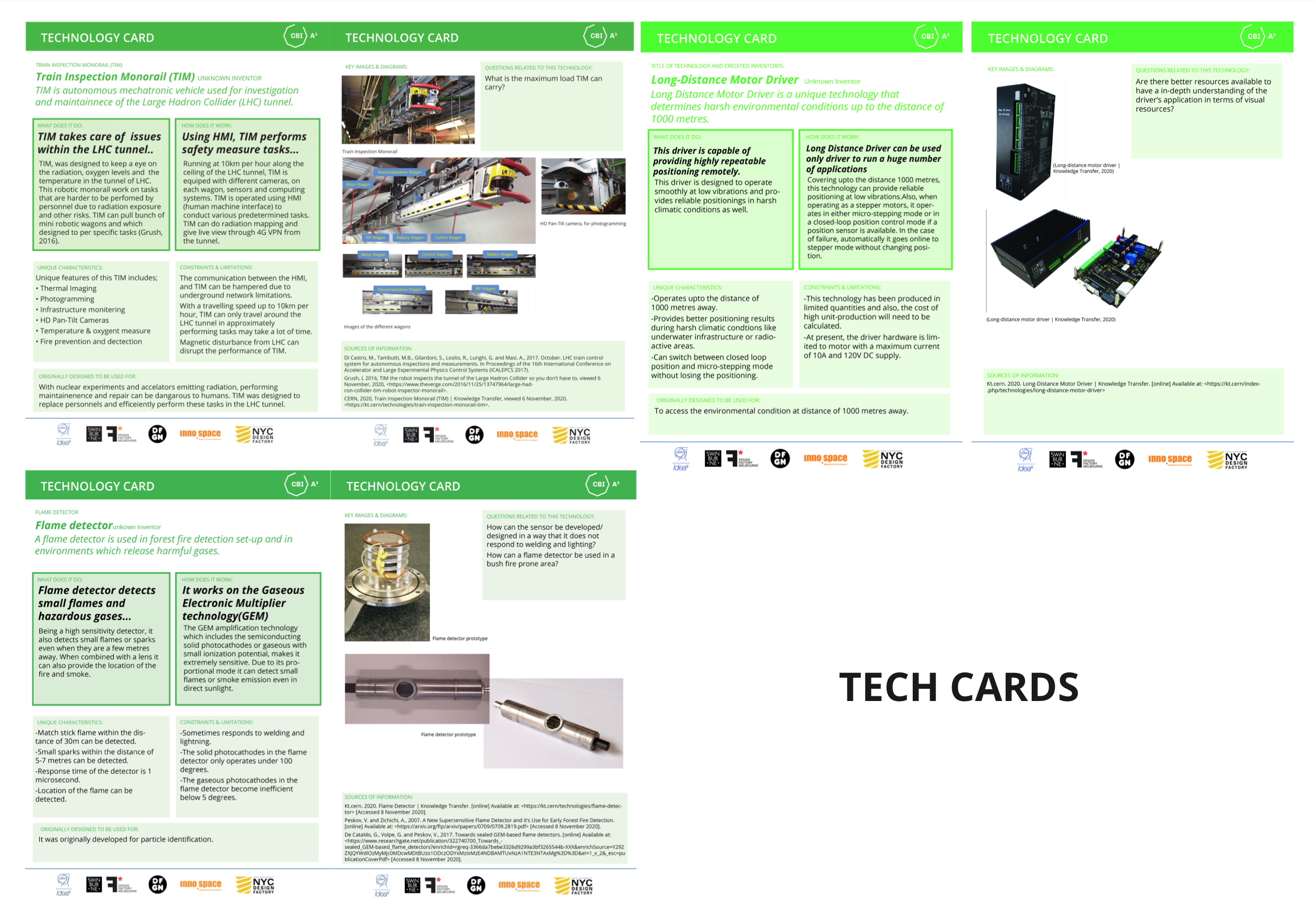 Overview of our technology cards
Overview of our technology cards
Highlight
The highlight of this week’s learning was from Aaron, our lecturer. In the first few cards, we came up with opportunities that were focused more on environmental impacts. To make us think differently and explore more topics, Aaron suggested that we should try to eliminate the word “sustainable” from our SDG for the time and just focus on “Cities and communities”. Our team took that advice and we had so many different areas to look at.
“Don’t think sustainable, think general.”
Next Steps
Our opportunity cards helped us identify issues that are within the city of Melbourne and In Regional Victoria. However, there many issues that are complex, overlapping each other, and underlying issues that could be discussed further. In the next phase, during the 4-week exploration festival, we are looking to validate these opportunities and choose an area to study in-depth.
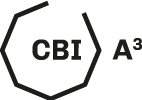
Recent Comments